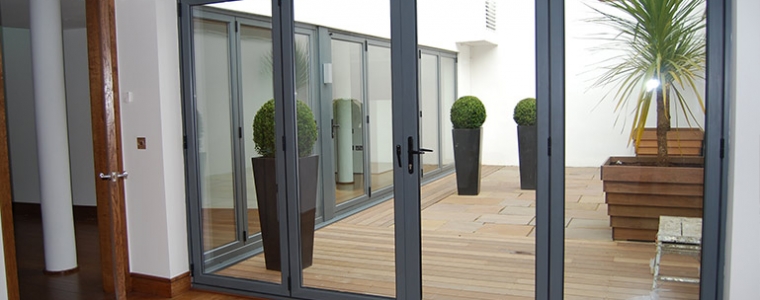- The average annual combined domestic electricity and gas bill reached £1,279 in 2012.
- This represents a rise of £107 (9%) from the previous year.
- Since 2007, the average residential bill for gas and electricity has increased by £400, a whopping 45 percent.
- In the first quarter of 2013, the country’s Big 6 energy providers raised the price of energy in the UK.
- The Energy Saving Trust reports that replacing single glazed windows with B-rated double glazing will reduce heat costs by £170 per year.
There is the possibility that you may need to replace the doors and / or windows in your home, although as we will see this isn’t always necessary, as there are steps you can take to improve what you already have. However, there are facts about energy costs and energy consumption that everyone in the UK should understand, before making the decision on whether to replace this aspect of their home.
Some of the facts are pretty simple;
- Many UK homes were not built with concerns about heat loss.
- Many UK residences were not designed or constructed with proper insulation.
- Many homes in the UK have outdated and inefficient heating systems.
- The cost of energy in the UK will continue to go higher.
- The carbon footprint of residences in the UK is not always meeting EU standards.
- Windows and doors installed in many British homes greatly affect the amount of energy required to heat the properties.
- If you do not act responsibly, you will continue to waste energy and pay more than is practical for the energy you use.
- In the UK, it has been proven that we waste far too much energy.
- We cannot solve all the energy woes in one fell swoop.
- Each of us must do what we can to reduce our reliance on fossil fuels.
“A shift is necessary toward lifestyles less geared to environmental damaging consumption patterns.” – Maurice Strong
“Consumption may be regarded as negative production.” – Alfred Marshall
IMPROVING ENERGY EFFICIENCY FOR EXISTING WINDOWS
There are steps homeowners can take to improve the energy efficiency of their existing, older windows.
- To further reduce leakage and add to the interior comfort of the home, apply caulk and weatherstripping around the window frames and storms.
- Caulk all gaps of less than one-quarter inch.
- Weatherstrip all moving parts.
- In rooms that are not in use, apply plastic coverings over the interior windows.
- In rooms that are in use, use heavy duty curtains that can be closed in cold periods.
WINDOWS AND DOORS DESIGNED TO SUCCEED
The latest window and door designs are invaluable to the homeowner who desires to reduce their energy consumption. Most obviously, these provide the residence with light, warmth, and ventilation. Unfortunately, many UK homes have ineffective windows and old inefficient patio doors that leak warmth and increase the amount of energy needed to heat the house more than necessary.
The British Fenestration Rating Council (BFRC) is responsible for testing window frames and glass. They evaluate the window’s ability to contain and conserve heat in a property. Based on this testing, each window is assigned a grade on a scale from A-G. A-rated windows are the most energy efficient.
Installing new highly rated doors and windows to reduce energy consumption is a solid environmental and financial decision. Over time, they will more than pay for themselves. Additionally, they will add value to the residence itself and increase the comfort of the home during particularly hot or cold periods, with less draft through the home and less winter colds for the inhabitants.
A primary consideration is keeping the “U Value” low. The current British U Value regulations are maximum of 1.8W/(m2K) when you are replacing existing doors and 2.0 W/(m2K) for new builds or extensions. Our aluminium bi-fold doors with triple glazed units can achieve U Values of 1.3 W/(m2K).
If you are looking to extend your property or add bi-fold doors to your existing extension, it’s worth considering how this will positively affect your energy consumption. Furthermore, there is no compromise on style, as windows and doors with high energy efficiency don’t necessarily can look visually stunning. Our range of bi-fold doors look amazing, and are highly functional and energy efficient at the same time.
FOR SOLAR ENERGY
If you are converting to solar energy for heat, your south-facing windows should have a solar heat gain coefficient (SHGC) of greater than 0.6. This is the minimal value that will increase your winter-time heat gain. The windows must have a U-factor of 0.35 or less to effectively cut conductive heat transfer and a high visible transmittance (VT) for good visible light transfer.
Windows on the east, west and north walls must have high insulation values in order to capture adequate daylight. Low-emissivity window glazing helps solar heat gain. There’s a lot to learn about today’s doors and windows, so contact us if you’d like to know more about the energy efficient qualities of our bi-fold door collection.

